Translated from the Bengali by Haimanti Dutta Ray
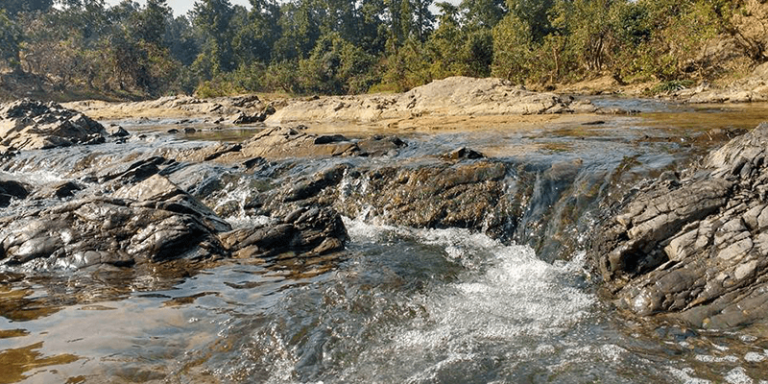
The Degadegi River in McCluskieganj
Memory and the chills, sitting side by side, sipped on the tea and ate cakes. These cakes, put together whipping eggs with such fluff, that the chills did not want to speak. The pristine luminescence from the window had opened a sliver… that which can very well be the kingdom of light. Flowers bloomed in the distant garden; but the hedges lay marred with those leaves from yester night’s dance and feast. Away, at a distance from the kingdom of light, they find the place where the dances were. Everyone sleeps in the cold. We did too. But even in our sleep, we heard the sounds, and the slumber continued. Because it did, the cold had to wait. We tried but could not recollect memories; could not recollect the dreams. So, I called both for breakfast. But before going there, cakes were served, wrapped in lukewarm foils. We were eating those.
It went below zero degree centigrade last night. Wondering how far the mercury could dip, I found only an account that is two years’ old. The time when it got the chilliest in forty nine years. Did the chill start to descend after that during winters? Why didn’t they plummet below zero, all the while during these forty nine years?
Thoroughfares abound all across Jharkhand and they glittered with mica dust. When cars moved, the roads appeared crystal clear—like a mirror almost, holding shadows of the trees or other objects. I tried to see through the mica. We caught a glimpse of Rana’s Garden. “We will go to Degadegi after this,” said Bapin.
—Where?
—Degadegi. River bank.
—Which river?
—Cannot remember.
—Could you remember before?
—I could.
—Was it cold then?
—It was.
—The chill used to drop below zero?
—No. It didn’t fall these forty nine years. It began thereafter.
—What is there at Degadegi?
—It’s there.
—What’s there? What all are there?
—There’s the river.
—Is there water—in the river?
—Probably not, at this time of the year.
—Why?
—During this time, in McCluksieganj, the river usually doesn’t have water.
—McClucksieganj?
—Yes, McClucksieganj.
—But did you not say it was Degadegi?
—Where McClucksieganj ends, there starts Degadegi.
I looked for mica on the road. I tried to see what could be seen through it. The mica was not there on the road. I did not realize when we entered McClucksieganj. I caught the glimpse of Rana’s Garden on the mica, now it seems as if the entire garden appeared on the road? Truly we were in McClucksieganj where there are gardens. One behind another, outlined by low walls. Sometimes high walls too. I could not see any houses. I said, “Why can’t I see houses?”
—It’s because all houses are enveloped by the gardens. You cannot see them during the day. At night, when the lights come up, you’ll see.
—What?
—Houses.
We went on our way discussing the houses. Because there were no mica, dust covered the roads. On our sides were rows of Sal and teakwood, decorous palms with their intact and worn foliage and the flowers, bursting or peeking from thickets. Wondering whether colors were flowing from there, the condition of the roadway worsened. Visuals appeared as trees, hillocks and river inlets. Then there came a message of caution on the wall, “Let’s keep the forests—mountains—rivers of McClucksieganj intact because they are the real riches of McClucksieganj.” Bapin said, “Degadegi is almost here.”
—Where ?
—Almost there.
—How do you know?
—Didn’t you notice the caution.
—What?
—To keep everything intact.
—What? The chill?
—No. The forests—mountains—rivers. All of them.
—What about the chill?
Upon arrival at Degadegi, Bapin disembarked and off he went down the river’s canyon. “He is going so far down, will he be able to climb up?”
—He will.
—But why must he go down there? The river can be seen well from above here as well.
—He is on his way back.
—Where?
—Thirty five years ago.
—How did you know?
—He told Tanuj.
—What will he do?
—He is making a rather big book.
—So what?
—It will be there in the book.
—What will be there?
—The incidents from thirty five years ago.
—And those of forty nine years into the past? They’ll be there too.
—Are you sure?
—Yes.
—I don’t know.
—I know.
—Do I know? I cannot say.
Bapin says, once by the waterfall, upon a rock, a friend had jumped over his chest, and his jawbone got locked. Panic spread among the friends, spittle started trickling down his open mouth. I asked, “I saw a photograph of the house where you stayed before.” Bapin remained silent. He did not have the ability to speak anymore; he looked at me drooling haplessly.
—Here all the houses have overflowing gardens, but as per the picture, the house where you stayed had none at front… Well, it wasn’t barren probably, but that sparse scatter of plants can hardly be called a garden.
Bapin listens with his mouth awkwardly gaping, unable to utter a word himself. I understand that he’s locked his jawbone. I ask, “Is it locked again?” Here, Bapin nods with difficulty and I realize that the incident had occurred beside a waterfall, it has a name, which can be found in the book Tanuj is making. The incidents occurred in the following manner—they had taken Bapin to a foreign-returned Bengali doctor in the McClucksieganj thirty five years ago. Before fixing Bapin with his extraordinary skill, he had said, “I can heal you but you’ll have to treat me with a big bowl or a box of Sandesh sweetmeats from Bhim Nag—Promise!” The man had it written down on a paper. I ask Bapin, “What did you write in the book—one bowl or one box?” This time too, Bapin remains speechless due to his locked jawbone and while he looks in the other direction, I find him walking along the deep river inlet and reaching near the Degadegi bridge when I looked that side. He appears smaller. Has he really gone thirty five years back? Then we’ll have to wait more. How long can one wait? But certainly the light will keep shifting—the strange luminescence before the sunset, the soft sheen of dawn, the glow that follows sunrise and how it mellows down to the day end. Thus, Degadegi could be seen under the myriad of shifting radiance. The hotel room too can be described differently under the play of many lights but the articles remain intact. In order to keep them intact, they put a sign on the walls, “Let us Keep the forest—mountains—rivers of McClucksieganj all intact.” I asked, “Have you gone thirty five years back?” But as I spoke from afar, Bapin failed to hear me. Just then, as I grew certain about the subject, while examining the road lights, I felt the chill intensify. And I have to get into the car. Bapin says, “It is necessary to visit a place again and again.”
—In the same day?
—Yes…
—Wouldn’t it be annoying?
—One has to see the place under differing lights.
—Why?
—To alter the time.
—Then?
—Color changes.
Truly, the roads, trees, those dwarfish forests and the houses hiding inside the forests all changed color as we went on. And I saw somewhere in the middle of the forest or in the dust, the arrow sign pointing to ‘Rana’s Cottage’. I did not want to follow the arrow sign to reach the cottage but to prevent myself from exploring some random route through the jungle, I did. Arriving at the middle of the forest, I realized that it would be most likeable to stay nearer the chill while really going back forty nine years in time. For that, there has to be a big mound of sand in front of the house; in the antiquated chill of the early morning, big pug marks need to be discovered. To which animal do those foot marks belong—leopard or wolf? Discussions will continue on this. Then McClucksieganj will again reverberate with its Anglo-Indian populace—those European men and knee-concealing, overdressed, brown European women who walked holding them up, wearing round hats. The hapless shops will dazzle like Calcutta’s Hogg Market with its rows of merchandise. Mutton shops, in imitation of those at Hogg Market, would sell the delights of the meats of beef, pork, and deer. Rat-a-tat-tat—shots fired—forty nine years ago, it was clearly understood that the pugmarks belonged to a leopard. The animal leaped over the wall, bending its body with extraordinary agility and escaped as they fired at it. Leaping over the low boundary wall of Rana’s Cottage. Two German Shepherds bounded forward, barking all the way—they possessed a shade blacker than the night and have stayed for many years at the colored, antique nameplate-attached modern wooden doors of Rana’s Cottage. The car of DIG Police arrived and halted here because this was a resort, put up for rent—exactly after forty nine years.
I see Bapin’s leg first, his hands too. He was climbing up from the deep inlet of Degadegi. He comes out pushing through the fragile and sparse forest of Rana’s Cottage. “It happened as you said,” he says to me.
—What did I say?
—All the houses in McClucksieganj are big. All of them are enveloped by gardens.
—Did I say that?
—Yes. Rana’s Cottage is no different.
—Really?
—Yes. And there is gun too, along with two Alsatians.
—German Shepherds, you mean?
The chill, forty nine years of the past, begins to descend again. I tell Bapin, “You went there?”
—Where?
—Thirty five years back…
—But I could not find that waterfall.
Also, read a short Hindi fiction by Chitra Mudgal, translated into English by Ayushee Arora, and published in The Antonym:
Follow The Antonym’s Facebook page and Instagram account for more content and exciting updates.

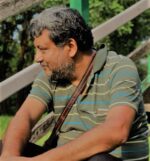
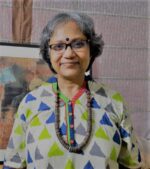
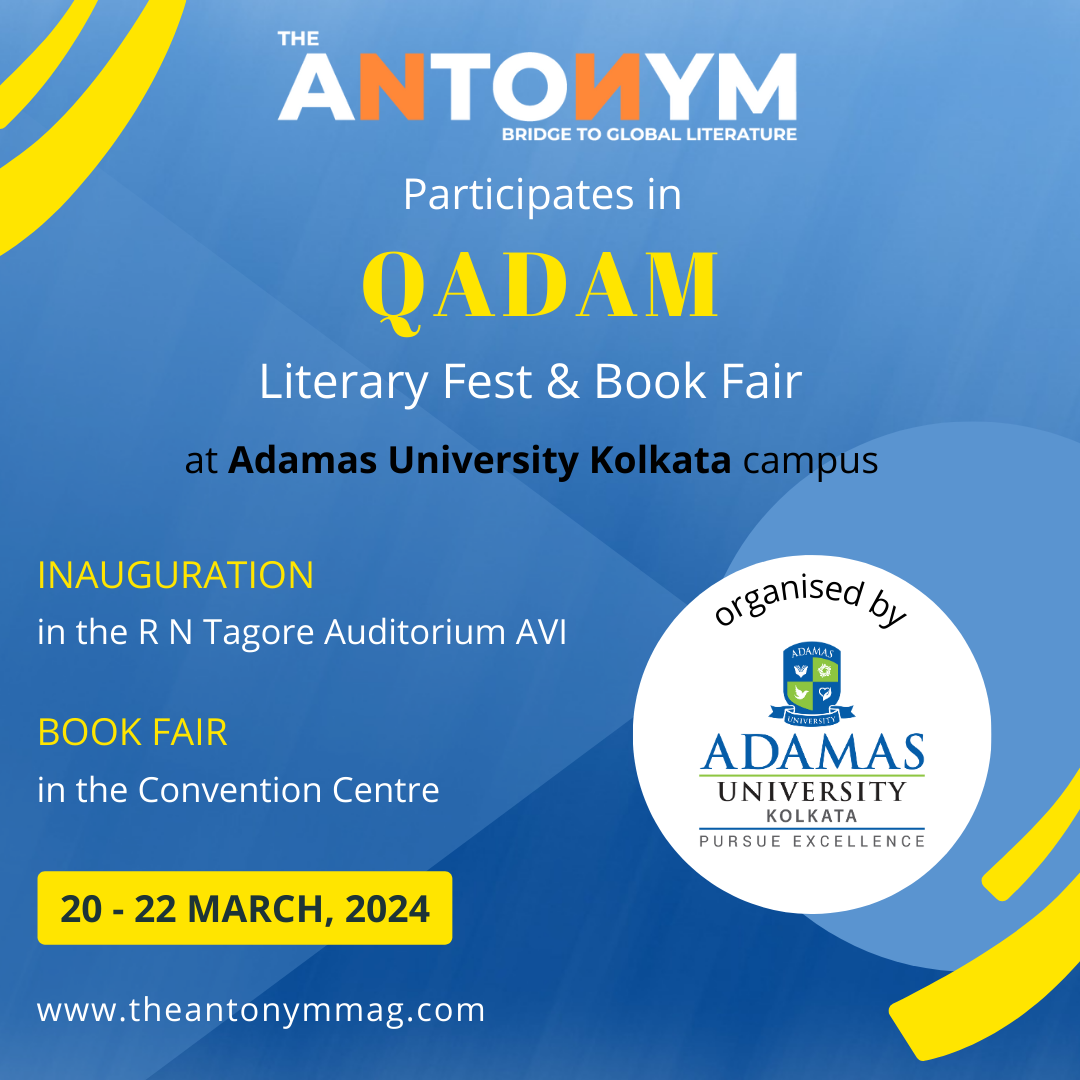
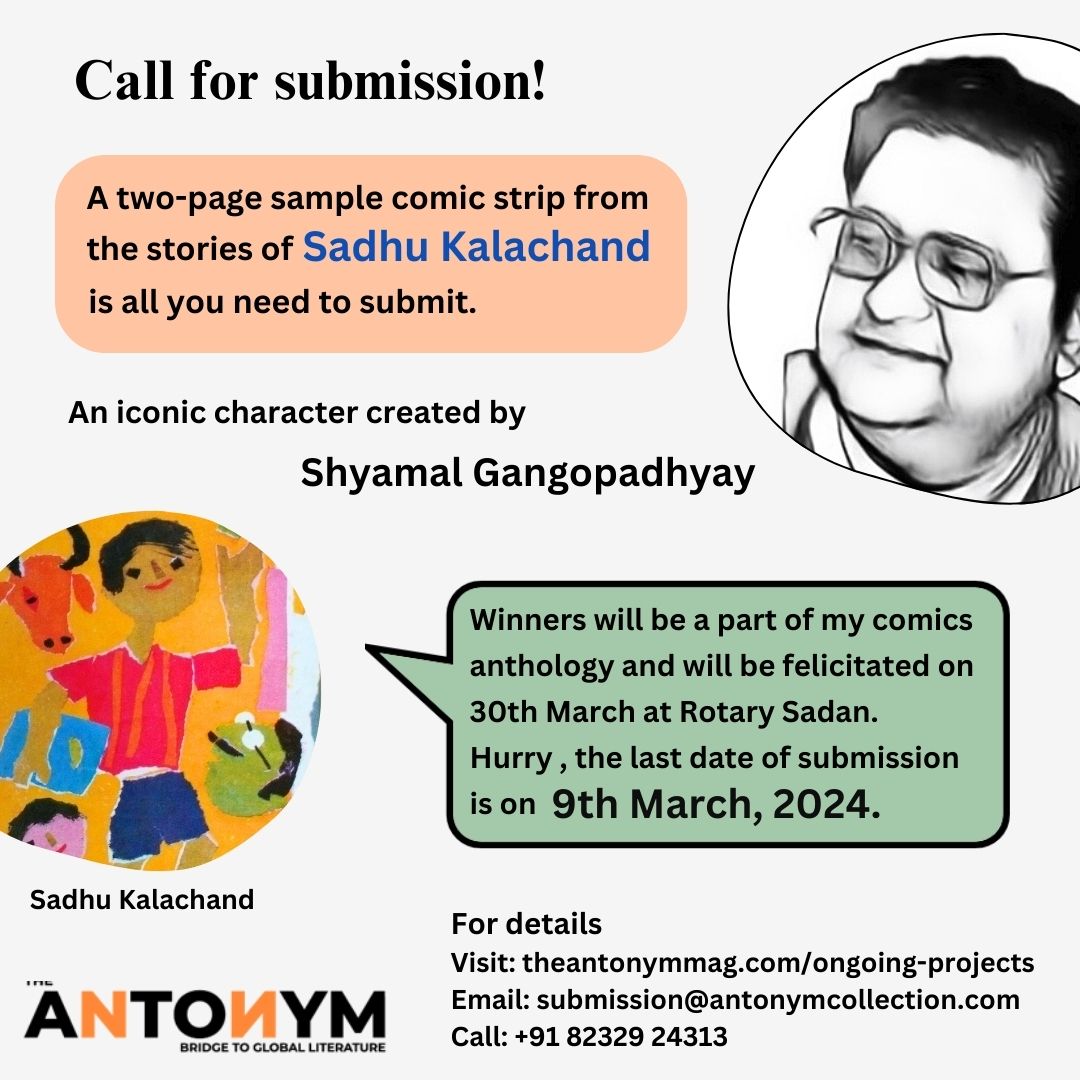
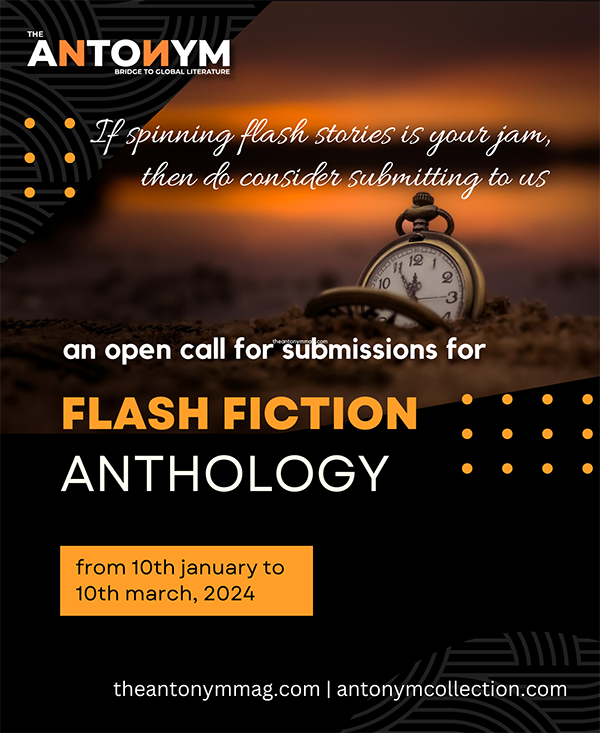








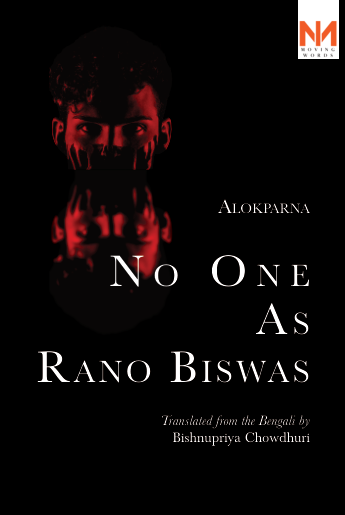
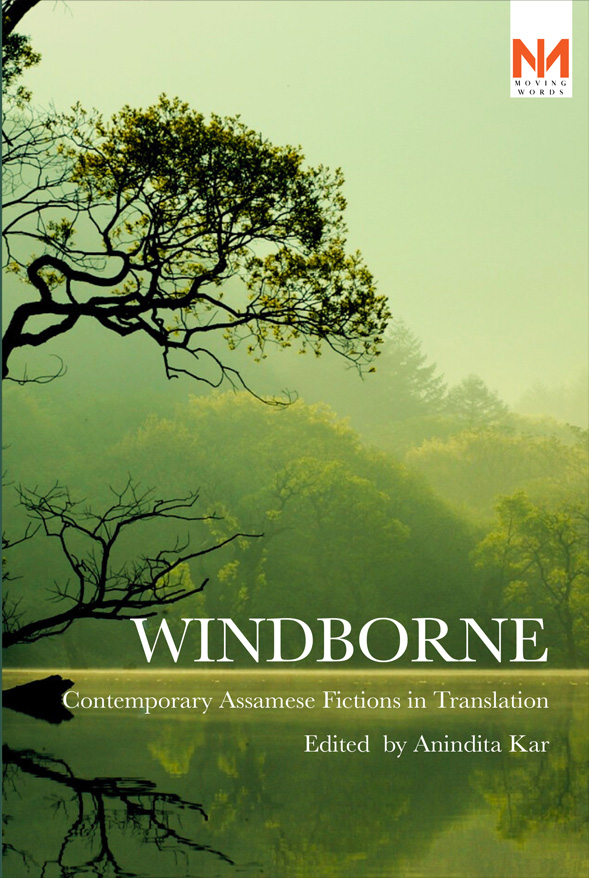
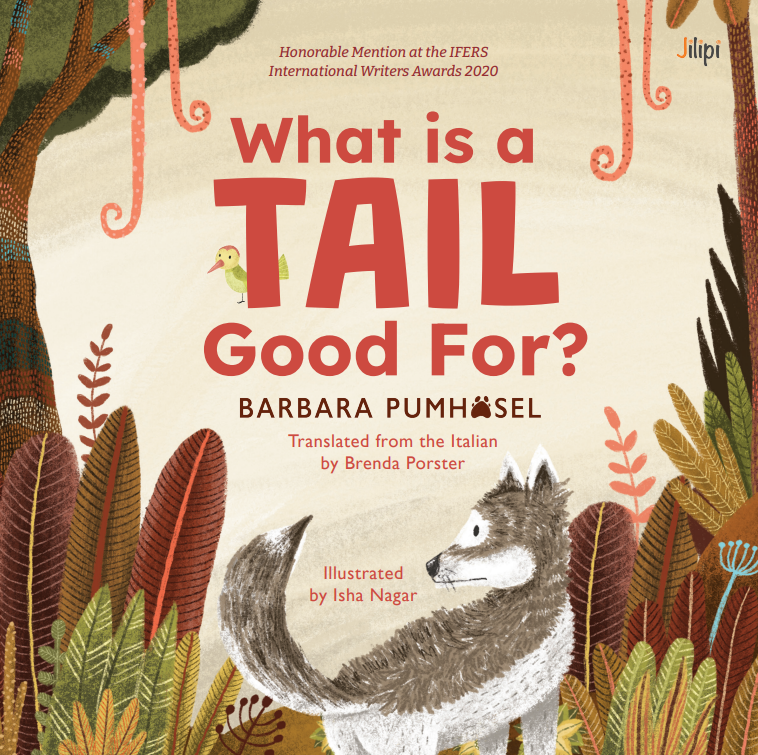















an excellent piece of writing from one of my favourite writers made more attractive by nice and apt translation.
I read this in Bangla earlier. It brought a different touch to Upal’s literary journey. Now again it’s good in Haimanti’s translation. Very fluent and carrying all the original flavours.